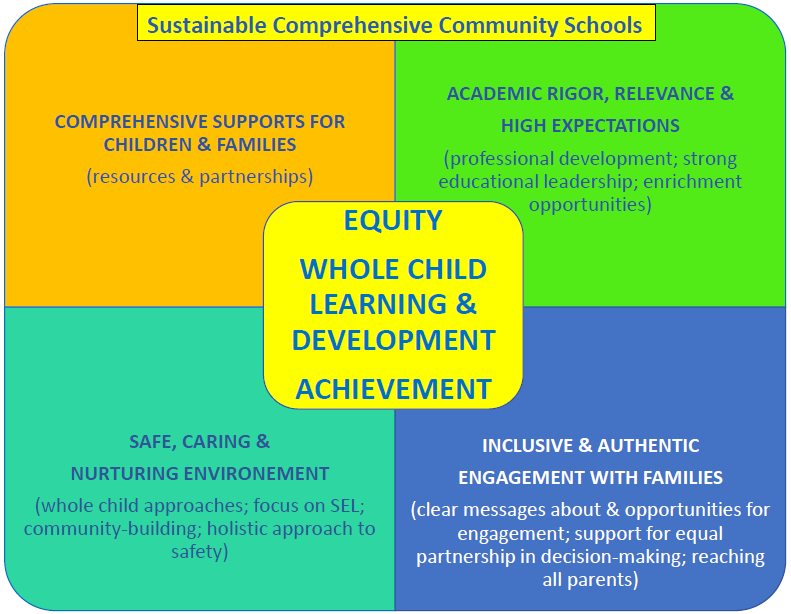The Egan Office works in partnership with schools and communities to add value to their efforts in support of the learning and positive development of children and their families. We promote equity and justice for children, their families and their communities.
The Egan Office supports community efforts to build strong, sustainable community schools. Community schools are centers of community-wide learning for adults and children. Community schools can be one-stop centers for meeting the social, health, economic and educational needs of families and their children. Stronger partnerships develop with the community resource people, groups and institutions that can be more easily sustained over time.

Communities come together in unique ways around their schools. In community schools, parents and community residents have their voices heard and participate in planning and decision-making. Parents and community residents take on leadership roles, organize others and plan for the future of the children, the school and the community as a whole. These skills are often transferable to other areas of personal and community transformation.
The Egan Office uses the following strategies to fulfill promote and support community efforts to build sustainable community schools:
- Promote Equity: Identify and challenge systems, policies and practices that contribute to inequity; and, collaboratively develop alternatives that are equitable and just.
- Facilitate Partnerships: Create mutually beneficial and sustainable partnerships among schools, community and university.
- Support Inclusive Engagement: Support greater family and community engagement in schools and school engagement in community. Ensure that all stakeholder groups participate in decision-making planning and implementation.
- Enhance Higher Order Learning: Enhance student learning and engagement with high level, relevant, rigorous, experiential and student-centered curriculum and learning opportunities that reflect the assets and history of the family, community and culture(s) of students
- Ensure Comprehensive Support: Support the development of a comprehensive, culturally appropriate and integrated web of social supports for students and their families.
- Secure a Caring and Safe Environment: Assist in the creation of safe, caring and nurturing school, family and community environment.